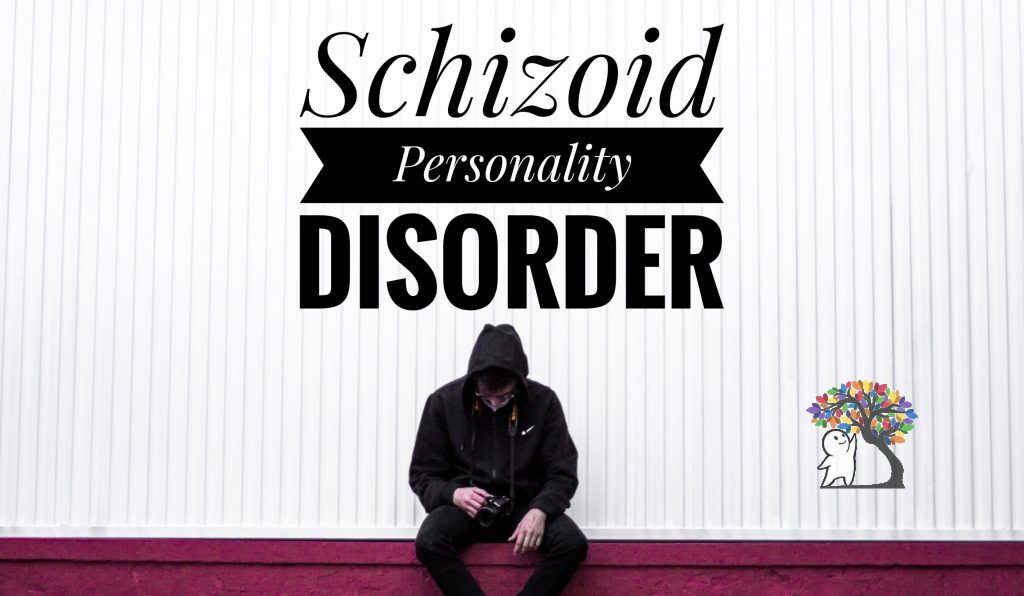Schizoid Personality Disorder – What Is It?

Many people confuse schizoid personality disorder with schizophrenia, but it is not the same. This confusion stems from the fact that both disorders share negative symptoms, such as, diminished emotional expression and avolition, which is a decrease in the motivation to initiate purposeful activities. The name schizoid is confusing as well, because it starts with ‘schizo’, which people associate with the name schizophrenia. But what are the differences?
 Schizophrenia is a mental disorder in which people interpret reality abnormally through delusions and hallucinations. Those with schizophrenia tend to have disorganized speech and/or behavior. On the other hand, according to the Diagnostic and Statistical Manual those with schizoid personality disorder have “a pervasive pattern of detachment from social relationships and a restricted range of expression of emotions in interpersonal settings” (American Psychiatric Association, 2013).
Schizophrenia is a mental disorder in which people interpret reality abnormally through delusions and hallucinations. Those with schizophrenia tend to have disorganized speech and/or behavior. On the other hand, according to the Diagnostic and Statistical Manual those with schizoid personality disorder have “a pervasive pattern of detachment from social relationships and a restricted range of expression of emotions in interpersonal settings” (American Psychiatric Association, 2013).
The diagnostic criteria for schizoid personality disorder are the following:
- Lack of enjoyment and desire to form close relationships even with family.
- Preferring solitary activities and jobs.
- A diminished desire to have sexual experiences with other people.
- Feeling little to no pleasure in activities.
- Appears cold and detached from people.
- Has little to no friends.
- Seems indifferent to the praise or criticism from people.
 Schizoid personality disorder begins in early adulthood. Those with it seem like loners to other people because they are hardly seen with anyone, other than an immediate family members. People also view those with this disorder as superficial because they misread social cues and respond inappropriately. They also do not reciprocate facial expressions and gestures, like, head nods, to those speaking to them.
Schizoid personality disorder begins in early adulthood. Those with it seem like loners to other people because they are hardly seen with anyone, other than an immediate family members. People also view those with this disorder as superficial because they misread social cues and respond inappropriately. They also do not reciprocate facial expressions and gestures, like, head nods, to those speaking to them.
One of the main characteristics of this disorder is feeling reduced to no pleasure in sensory and bodily experiences. For instance, not enjoying a nice hike in a beautiful forest or having sex. Another trait is not being bothered by what others think of them. Those with this disorder report rarely feeling emotions, such as, anger or happiness. The few times that they do, usually involves negative feelings related to social interactions.
This mental disorder can be diagnosed as a single disorder but can co-occur with schizotypal disorder, paranoid personality disorder, and avoidant personality disorder. Even though schizoid personality disorder starts during early adulthood, it may become apparent in childhood with poor relationships and underachievement in school. This disorder isn’t fully understood, but scientist have discovered evidence that it shares a genetic association with schizophrenia. Meaning this disorder may have an increased prevalence in those with relatives who have schizophrenia.
 This disorder is rarely seen in clinical settings because those with it hardly feel like anything is wrong with them. Seeking treatment is often not seen as an option from those with this disorder because it would mean interacting with another person. Therefore, little research has been conducted on the treatment of schizoid personality disorder. It is believed that cognitive behavioral therapy can help with re-framing thoughts and behaviors around social interactions while group therapy can help with learning social skills. Medication isn’t prescribed, unless there are other disorders such as anxiety present.
This disorder is rarely seen in clinical settings because those with it hardly feel like anything is wrong with them. Seeking treatment is often not seen as an option from those with this disorder because it would mean interacting with another person. Therefore, little research has been conducted on the treatment of schizoid personality disorder. It is believed that cognitive behavioral therapy can help with re-framing thoughts and behaviors around social interactions while group therapy can help with learning social skills. Medication isn’t prescribed, unless there are other disorders such as anxiety present.
Hopefully, studies will be conducted soon to understand this mental disorder better and by doing so creating treatment options. I hope this article can help you understand this disorder better. Let me know what you think in the comment section.
References:
American Psychiatric Association. (2013). Diagnostic and statistical manual of mental disorders (5th ed.). Washington, DC.



Responses